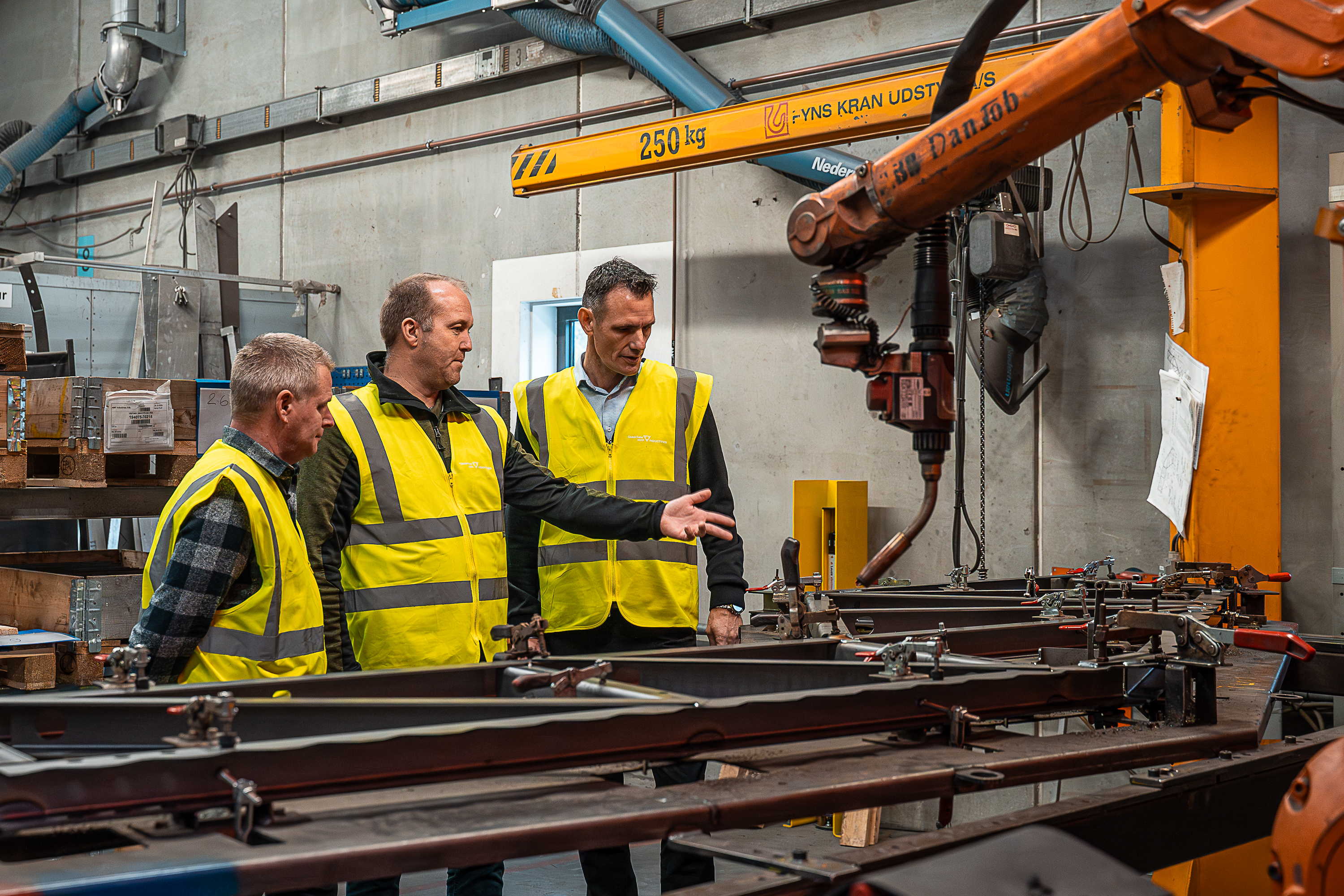
The Metal & Machine Industry
The metal and machine industry: Development of components and machines for the industries of the future
The metal and machinery industry is one of the most essential sectors of the global economy, as it provides the basic technologies and components that underpin almost all other industries.
From agriculture and automotive manufacturing to energy and the pharmaceutical industry, the metal and machinery industries are key players in the development of machines, tools and components that drive efficiency and innovation in modern manufacturing.
This industry is not only the basis for mechanical solutions, but also for advanced technology that enables automation, precision work and scalable production across sectors.
The heart of modern machine production
The development of components for machines is one of the most important tasks within the metal and machine industry. Components such as gears, motors, bearings, shafts, pumps and valves play a central role in the operation of industrial machines and systems. These components must be both functional, durable and economically sustainable.
Material selection and technological innovation: The choice of materials for the production of machine components is critical to achieve the desired properties such as strength, weight, durability and corrosion resistance. Traditionally, steel and iron have been the most used materials, but in line with technological development, new, lighter and stronger materials have come into play, such as composites, titanium and aluminum alloys. For example, lightweight materials are used in the automotive and aerospace industries to reduce weight and increase fuel efficiency.
Technological innovation, such as 3D printing and additive manufacturing, has also opened up new opportunities to manufacture complex components with high precision and in smaller series. This has proven particularly useful in the development of specialized machine parts needed in industries such as aerospace, automotive and pharmaceuticals.
Precision and durability: An essential requirement for the components is precision. In industries such as medical equipment and high-precision machinery, accuracy is essential for the functionality and safety of the machines. Therefore, advanced machining methods such as CNC machining, laser cutting, and water jet cutting are often necessary to achieve the desired precision in the components.
Durability and resistance to wear are also critical factors, especially in industries such as mining and oil and gas extraction, where the machines are exposed to extreme conditions. Therefore, new alloys and coatings are constantly being developed that can improve the lifetime of the components under harsh operating conditions.
Machine development: From prototype to production
The development of machines and equipment for industrial purposes requires extensive engineering efforts that combine advanced technology, material knowledge and in-depth understanding of the specific industry where the machines are to be used. Manufacturing companies engaged in machine development often work closely with their customers to create customized solutions that are optimized for specific production needs.
Automation and Robotics: One of the most significant advances in the machine industry is the implementation of automation and robotics. Machines have increasingly been equipped with sensors, computer control and artificial intelligence (AI) to increase productivity and precision in production. Industrial robots are used for everything from assembly and welding to painting and packing, resulting in increased speed and less human error.
Smart factory technologies, where machines and equipment are connected via the Internet (IoT), enable real-time data collection, remote monitoring and predictive maintenance. This helps optimize machine operation and minimize downtime, which is particularly important in industries such as automotive manufacturing and electronics.
Specialized machines: Various machines and equipment used in the metal and machinery industry often have to be adapted to the specific needs of the industries they serve. For example, in the automotive industry, the machines must be able to handle the precision manufacturing of car parts such as engine blocks, gearboxes and bodies at high speed and reliable tolerances. In the pharmaceutical industry, there is a need for machines that can manufacture medical instruments or package pharmaceutical products under strict quality and hygiene standards.
In the energy industry, including wind energy and the oil and gas sector, it requires specialized machines that can withstand extreme temperatures and pressure conditions. The machines must be designed to operate efficiently in harsh and often risky environments.
Sustainability in machine development: An increased focus on sustainability has also affected machine and component development. Manufacturing companies are looking for solutions that can reduce energy consumption, waste and material wastage. In this connection, green technology, such as energy-efficient machines and recyclable materials, plays an increasingly important role. In addition, there is a growing need for closed-loop production systems that recycle energy and materials to reduce environmental impact.
Machine manufacturers are also working to develop equipment that supports the circular economy, e.g. machines that are easier to dismantle and recycle, or machines that help recycle waste from production processes.
The challenges of the future
As in many other industries, the metal and machine industry faces both challenges and opportunities in the coming years. On the one hand, technological advances, including automation and digitization, require large investments in research and development. On the other hand, these advances open up new markets and business opportunities, especially in emerging industries such as robotics, 3D printing and sustainable manufacturing.
The success of the industry also depends on the ability to adapt to the challenges of globalization, including changes in supply chains, as well as the economic and political conditions that affect production costs. Industrialization 4.0 and digitization of manufacturing processes, however, offer a wealth of opportunities to increase efficiency and reduce costs, while meeting the highest demands on product quality and sustainability.
The metal and machinery industry is the cornerstone of many of the most important industries in today's economy. From the development of advanced components and machinery to the production of complex systems that support innovation and growth across sectors, this industry is essential to both technological progress and economic development. As the industry embraces new technologies and sustainable solutions, it will continue to play a central role in shaping the future production landscape.
